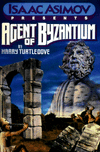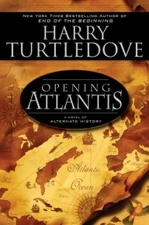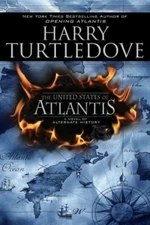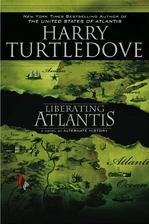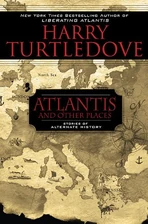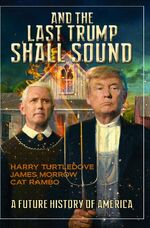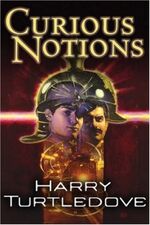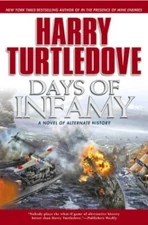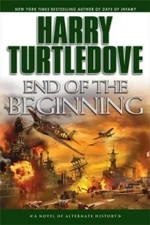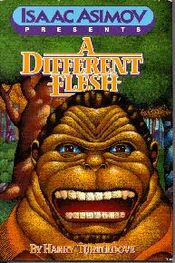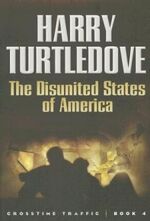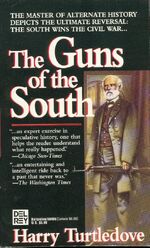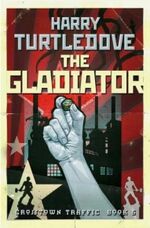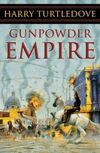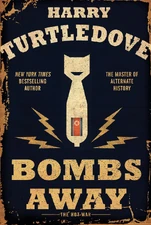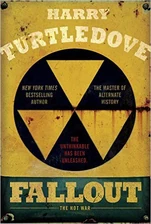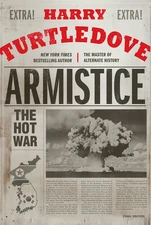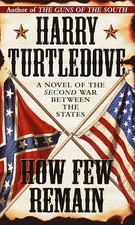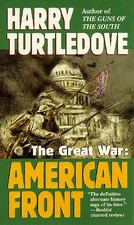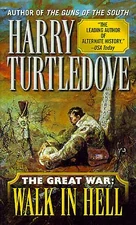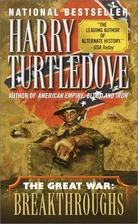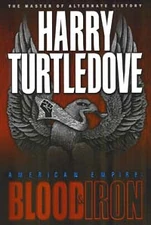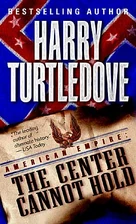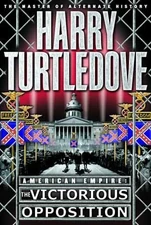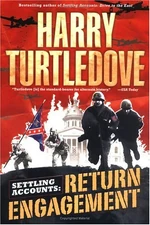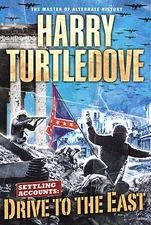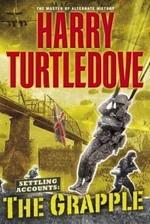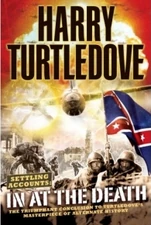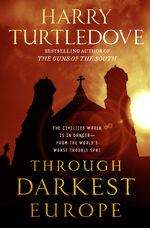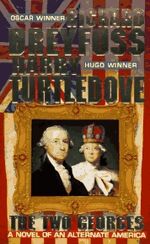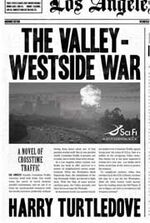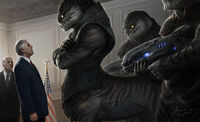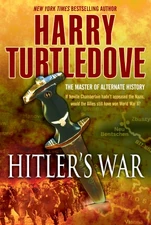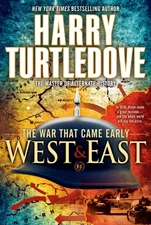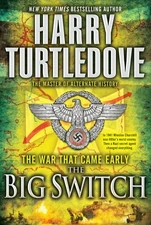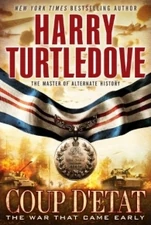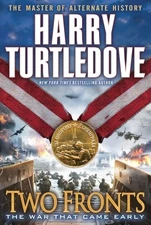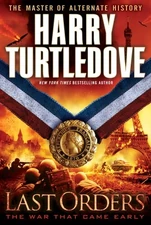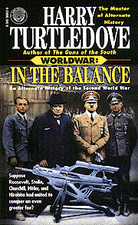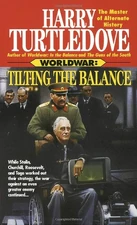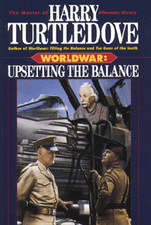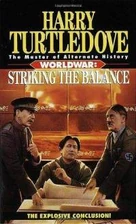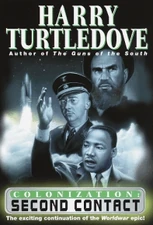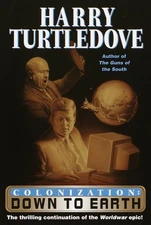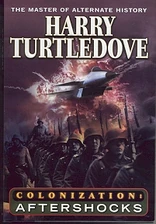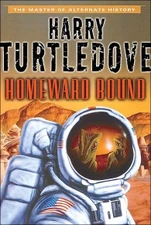- For the small Mexican town, see China, Nuevo León.
| People's Republic of China | |
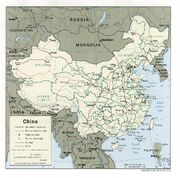
| |
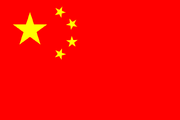
| |
| Country | |
| Continent: | Asia |
| Capital: | Beijing |
| National Language: | Mandarin |
| Government: | Socialist Single Party State |
| Status in OTL: | Active |
China (Chinese: 中国; pinyin: Zhōngguó) is a large country in Asia, with the second-highest population on the planet. It is one of the oldest continuous civilizations on the planet, having in its history given a number of important inventions and technological advancements to humanity, as well as influential cultural practices and institutions.
Since 1949, the government in control of the Chinese mainland has been the People's Republic of China (PRC). The head of state of the PRC is the President and the head of government is the Premier of the State Council. Both officials serve five-year terms. Officially, the President is chosen by the National People's Congress (the world's largest legislative chamber, with nearly three thousand seats), and the Premier is appointed by the President with the advice and consent of the Congress. In practice, both offices are invariably awarded to candidates chosen informally by the Central Committee of the Chinese Communist Party.
The PRC is essentially a one-party state, though a minority of seats in Congress are set aside for approved smaller parties provided those parties go into coalition with the Communists and both accept and support Communist leadership. High-ranking government officials are usually high-ranking Party members as well. This has created a unique intermingling between party and government: Party members serving in government are obliged to carry out party policies, but as party leaders they have considerable influence on the shaping of those policies. This system is different from that seen in other Communist countries such as the Soviet Union, where the party's dominance of the government was one-sided.
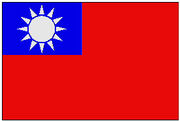
The flag of the Republic of China, which ruled the nation from 1912 to 1949. Many of Harry Turtledove's stories and especially novels involving China take place during the Republican period.
The PRC's sovereignty is disputed by the Republic of China (ROC). The ROC was founded on 1 January 1912 after the 1911 Xinhai Revolution overthrew the ruling Qing Dynasty and ended well over two millennia of imperial rule in China. At the time, China was in a semi-colonized state, with half a dozen foreign powers claiming spheres of influence centered around the country's most economically vital regions. The ROC never did effectively control all the territory over which it claimed sovereignty: foreign imperialists, Chinese warlords, a Japanese invasion, and the Communist Party all controlled significant portions of Chinese territory at some point during the period when the ROC was in power.
The Chinese Civil War began in the 1930s when the ROC's ruling Kuomintang Party expelled the Communists from their governing coalition and violently purged Communist officers of the armed forces. The civil war was interrupted during the Second Sino-Japanese War, with both sides (more or less) cooperating, along with the Allied Forces, to expel the Japanese invasion. Following the end of World War II, the civil war quickly resumed, and in 1949, ended with a near-complete Communist victory. The ROC managed to hold the island of Taiwan and several smaller islands in its vicinity, and reestablished its government in Taipei. The ROC continued to claim to be the rightful government of China, and the PRC claimed sovereignty over Taiwan and the other ROC holdings. This situation has persisted to the time of this writing (2015), though a military conflict has yet to arise over the dispute.
During the first half of the Cold War, most anti-Communist countries supported the ROC's claim. However, as the PRC consolidated power on the mainland, this was seen as increasingly unrealistic. In 1971, the United Nations expelled the ROC and seated the PRC in its place, granting the PRC China's permanent seat on the Security Council. The following year, the United States began a policy of détente with PRC which gradually led to full diplomatic recognition in 1979. Since these two events, momentum has steadily built internationally to acceptance of the PRC as China's rightful government. However, at the time of this writing, 22 states continue to recognize the ROC, and numerous others openly maintain unofficial back-channels.
Literary comment[]
Harry Turtledove timelines focusing on China usually place the Point of Divergence during or shortly before WWII, or occasionally in the People's Republic. While the Empire is referenced in stories with a pre-1911 POD, it is rarely the focal point of any alternate history.
China in Agent of Byzantium[]
By the early 14th Century, China was one of the three great powers in the known world. The others were the Roman Empire and the Persian Empire.[1]
China in Atlantis[]
A number of Chinese people immigrated to Atlantis in the 19th century. Hanover had a sizable Chinatown.[2]
On the Atlantean Senate floor in 1852, Consul Leland Newton reminded Jeremiah Stafford that the achievements of 13th-century Cathay dwarfed those of Europe, thereby deflating Stafford's claim that European people had always been leaders of the world.[3]
China in "Before the Beginning"[]
China was one of the first countries to convert to Judaism en masse after it was revealed that the Jews were indeed God's chosen people.[4]
China in "The Breaking of Nations"[]
The People's Republic of China was one of the first nations to recognize Pacifican independence in 2031. This was a tactical maneuver to weaken the United States, rather than an endorsement of Pacifican ideals. The intermittent trade war begun under President Donald Trump had made markets in both countries nervous.[5]
China in Broadway Revival[]
Officially, the People's Republic of China had no interest in time travel, and opposed even fictional depictions of the concept throughout the 21st century in an effort to discourage its citizens from contemplating a time when China was less repressive. Naturally, these banned stories and movies were quite popular in China in spite of (and because of) the ban. For example, bootleg copies of the documentary "Traversing Through Time" were available and widely seen. Despite China's public assertions and repressive efforts, most other countries assumed China had its own time machine.[6]
Aside from this, China officially innovated in other areas. They created a medication dubbed "the Boost", which reduced the side affects of harsh drug treatments. While it was slated for release in the United States in 2080, David Greenbaum went to Hong Kong to obtain a supply in 2078 as part of his "Broadway Revival" plan to prolong the lives of several Broadway composers in the past.[7]
In the period between 2038 and 2078, China put down two bloody uprisings.[8] Due to climate change issues, northern China was experiencing increasing dust storms.[9]
After he went into the past to begin his "Broadway Revival", David Greenbaum did not interfere in larger world history. China's history was identical to the original timeline.[10]
China in The Case of the Toxic Spell Dump[]
Hanese immigrant culture was well established in the Confederation's Golden Province. Although the Hanese nation was very powerful, the Confederal Central Intelligence did not consider it to be an imminent threat.
China in Crosstime Traffic[]
Crosstime Traffic was aware of an alternate in which China had discovered and completely settled North America. In another alternate, China was responsible for starting a devastating nuclear war. In another, the descendants of Alexander the Great ruled half a dozen empires that stretched from Spain to the borders of China. Footage taken in this alternate was shown to Jeremy Solters and his fellow students in US history class.
In another alternate, where Jeremy Solters' friend Michael Fujikawa went with his parents, China was dominated by Japanese warlords - which gave the Fujikawa family, with their Japanese background, a better chance to blend in. In the messages which Michael sent to Jeremy, he made little mention of the history or technological level of the China in whose North he lived, mainly complaining of having to get up very early for long and boring religious ceremonies, as part of keeping the Fujikawas' cover in that alternate.
China in Curious Notions[]
In the alternate designated as 3477, China, like the rest of the world, was politically dominated by Germany after it emerged victorious from the brief war of 1914. Its tremendous size and huge population, however, made it nearly impossible to rule to the same extent that Germany ruled other countries.
Although China had overthrown and abolished its monarchy in 1911, Germany restored it, and continued to rule China through the emperor well into the 21st century. China's population, though, made it easy for resistance movements to rise up against German rule and disappear without a trace in advance of crackdowns. By the 2090s, the Triads were working all over the world, including in the United States, to replace the German hegemony with Chinese hegemony.
Given China's "wild" status, Crosstimer Lawrence Gomes' claim that Curious Notions purchased its far too advanced merchandise from China was readily accepted by German authorities.
China in The Disunited States of America[]
China had dissolved into various autonomous provinces in the 20th century. Two or three of these were considered great powers of the world in the late 21st century.
China in The Gladiator[]
After the Soviet Union won the Cold War, the People's Republic of China was the only viable rival for the USSR. The PRC had carved out a substantial sphere of influence in the world, most importantly in East Asia, but it was not unheard of for China to meddle in Russia's immediate sphere. Most famously, Albanian leader Enver Hoxha had broken with the USSR and turned to China in the late 20th Century. Though at some later time the Soviet Union re-imposed an Albanian regime friendly to itself, there were still pro-Chinese guerrillas fighting the pro-Soviet government in the closing days of the 21st Century.
China in Gunpowder Empire[]
China was the easternmost in a string of empires stretching all along the Eurasian land mass, which also included the Roman Empire, Lietuva, Persia and the two empires sharing the Indian subcontinent, all of which - though having varied historical and cultural backgrounds - possessed gunpowder and artillery and had considerable stability. There was some trade between the Chinese and Romans, but it was not very important to either empire. Scholars noted that these two empires had a similar problem of their shores being the target of pirates, from Japan and Scandinavia respectively.
There was a popular fable, circulating in the Roman Empire, which told about the encounter between the Emperor Agrippa and a beautiful Queen of China. It was not historically accurate, as Agrippa never went anywhere near China during his lifetime, but was regarded as a good story nonetheless.
China in In High Places[]
China was the richest and most powerful country of an alternate where four in five Europeans were killed in the Great Black Deaths. It was conquered by the Manchus, who continued to rule into the 21st century. However, despite the accomplishments of Admiral Zheng He, China never filled the void of exploration and technological development that the crippled Europe left, much to the puzzlement of Crosstimers.[11]
China in The Valley-Westside War[]
Some scholars from the home timeline speculated that China played an important part in the root causes of the mysterious 1967 war that devastated much of Earth in one alternate.[12]
China in "Curse of the Three Demons"[]
Much of China under the rule of Kubilai and the Mongol Empire when Arab Sa'id ibn Hawqal traveled to Kaifeng. While Mongols held the positions of power, the native population frequently held crucial positions as advisers to the Mongols.[13]
Sa'id did not particularly like the Chinese. He was unnerved by their politeness, disdainful of their customs, and scornful of their pagan beliefs. However, it was a community of Chinese Jews that helped him when he was cursed by Bagadan, the Mongol governor of Kaifeng.[14]
China in Days of Infamy[]
China was the scene of hard and difficult fighting for the Japanese military prior to World War II. Many of the Japanese soldiers who occupied Hawaii were veterans of fighting in China. These veterans found occupying Hawaii to be much easier.
China in A Different Flesh[]
Fossils of creatures very much like sims were found in China at the caves near Pekin. This suggested that sims had crossed from Asia to North America during one of the Ice Ages, when a land bridge connected the two continents.[15]
China in "Donner Summit"[]
The Chinese language merged with English and Spanish to form Mandarin Spanglish, the lingua franca of Earth.
China in "Drang von Osten"[]
In the 2040s, the People's Republic of China launched an invasion of Russia that moved quickly towards Europe. In response, a coalition led by Germany moved into the east in 2041, and were able to establish lines well into European Russia. However, by 2043, those lines were collapsing in the face of the sheer numbers of soldiers fielded by the People's Liberation Army, which had pushed into Ukraine.[16]
China in "Getting Real"[]
By 2117, China was the sole superpower, having overtaken the United States during the previous century. In addition to its military and economic power, China led the world in technological research and development. Prior to 2117, the U.S. ceded Catalina Island and the rest of the California Channel Islands to China when the United States found it couldn't pay outstanding debts.
In 2117, a series of trade disputes prompted the U.S. to declare war on China. China easily prevailed in the brief war. China leased Long Beach and San Pedro under very favorable terms, and extracted other concessions that further hobbled the U.S.
China in The Guns of the South[]
Some of the AK-47s delivered to the Army of Northern Virginia by Andries Rhoodie and America Will Break, carried marks proclaiming themselves to have been made in the People's Republic of China. The Army's staff officers pored over maps of China, but found no mention of a part of that country known as a "people's republic."
China in The Hot War[]
The Chinese Communist Party had taken control of mainland China in 1949, establishing the People's Republic of China under the rule of Mao Tse-Tung. The United States and much of the West did not recognize Mao's PRC, instead declaring the exiled government of Chiang Kai-Shek, which controlled only Formosa, as the "true" China.[17] The Soviet Union, on the other hand, did recognize the PRC.
In October of 1950, the PRC intervened in the Korean War by dispatching troops to aid North Korea after UN troops crossed the 38th Parallel. The Chinese intervention completely surprised the UN forces. The Chinese troops succeeded in cutting off three divisions of U.S. troops between the Chosin Reservoir and Hungnam, and throughout November 1950, those U.S. troops were destroyed.[18]
In response, U.S. President Harry Truman authorized General Douglas MacArthur to use atomic weapons in China if they were the only way to improve the situation.[19] That decision was made on January 23, 1951, and the U.S. bombed several strategic positions in Manchuria.[20] In response, China convinced the Soviet Union to launch atomic attacks on U.S. allies in Europe.[21]
While the Soviets and the Americans began a series of tit for tat bombings that finally escalated into World War III, the Chinese government kept its focus limited to the fighting in Korea, insuring a steady flow of arms to the North Koreans.[22] To insure the flow remained steady, Mao pushed for rapid repairs to the places the U.S. had atom bombed. By April 1951, the rail line through Harbin was functional again.[23] For the remainder of 1951, Chinese and North Korean troops pushed south.[24] The lines stalemated south of Chongju, with the Americans and the Chinese intermittently taking shots at one another throughout June and July 1951.[25] This stalemate was broken when the Soviets dropped atom bombs on Pusan and Chongju in South Korea in August,[26] Chinese and North Korean troops poured through the hole the Soviet's had created,[27] driving UN troops south to Kaeryong,[28] where their stubborn resistance stabilized the lines once gain.[29]
For his own part, Mao realized that the U.S. would certainly do its best to kill him with an atomic bomb. He made a habit of staying in one town for a day or two at a time before moving on.[30] Joseph Stalin used a similar tactic. However, in June, 1952, American intelligence located Stalin in Omsk and deployed the new hydrogen bomb, killing Stalin and destroying Omsk.[31]
Despite this turn of events, Mao remained defiant, promising that the forces of revolution would be victorious.[32] However, NATO attacks on North Korean and Chinese infrastructure began taking a toll. In August, 1952, the Chinese government approached the government of Yugoslavia to open up talks with the U.S. While Marshal Tito was a "deviationist" in Mao's eyes, Yugoslavia was one of the handful of countries to maintain relations with both the U.S. and the P.R.C.
Chinese Foreign Minister Chou En-Lai proposed a return to the status quo ante bellum in Asia if the U.S. ended its bombing campaign against China. Chou further promised that North Korea would withdraw its forces north of the 38th Parallel. Yugoslavian Foreign Minister Edvard Kardelj met with President Truman in Philadelphia with Chou's proposal. Satisfied that Kim would withdraw, Truman accepted Chou's plan, and the war officially ended on all fronts.[33]
China in In the Presence of Mine Enemies[]
China was an occupied territory of the Empire of Japan in 2010. It was partitioned by the Japanese with a separate puppet state existing in Manchukuo under an emperor. The Japanese made a systematic use of it as a pool of virtually unlimited cheap manpower.
China in Joe Steele[]
China was in the throes of a civil war between the government of Chiang Kai-Shek and the Reds of Mao-Tse-Tung before, during and after World War II, including the period when Japan had invaded China.[34] In August 1945, the Soviet Union pushed Japan out of China. However, Soviet Premier Leon Trotsky ensured that Manchuria went to Mao.[35] Throughout the remainder of the 1940s, Mao gained on Chiang's forces,[36] until, in October 1949, just two months after the end of the Japanese War, Mao and his Reds pushed Chiang's forces off of the Chinese mainland.[37]
The U.S. had backed Chiang, and refused to recognize Mao. For a time, U.S. President Joe Steele had considered using atomic bombs to support Chiang, as they'd effectively ended the Japanese War. However, when the Soviet ambassador to the U.S., Andrei Gromyko, suggested that any U.S. atomic attack in China might be met with a Soviet atomic attack in Europe, Steele dropped the idea.[38]
China in "The Last Article"[]
By 1947, Japan had total domination over all of China, and was busy negotiating a trade deal with Germany.
China in "Last Flight of the Swan of the East"[]
China had been divided up into spheres of influence by Western Powers and Japan. For example, Germany had established a colony at Tsingtao.[39] However, the government of China proper did not enter the Great War in 1914.[40]
For more information, see the Leviathans wiki.
China in "Les Mortes d'Arthur"[]
By the 22nd Century, China had overthrown Communism and restored its status as an empire. It was wealthy enough to send a large team to Mimas, a moon of Saturn, for the Sixty-sixth Winter Games but not so wealthy as to have them sent early to train in the low-g environment.[41]
China in "My Hypothetical Friend"[]
By the time the Brot contacted Earth, China was one of the most technologically advanced countries on the planet. However, in the 1980s, China was quite behind in the world. American companies had the production of toys and other goods outsourced to China. These products were assembled primarily by peasants who had absolutely no idea what they were building or why. In the middle of the 21st century, Dave Markarian of Interstellar Master Traders explained this history to Brot trader "Old Salty".[42]
China in "Occupation Duty"[]
Inhabitants of the Middle Kingdom had a fundamental difference with the Turks of Babylonia over interpretation of the teachings of Buddha. The Middle Kingdom people like their neighbors in Eastern Asia held to the traditional view that Buddhism was a pacific religion, while the more recently converted Turks supported the "Sword Buddha" who authorized and encouraged violence and killing.[43] Still, the different kinds of Buddhists shared various elements of the religion, such as the mantra "Om Mani Padme Hum".[44]
China in "The Phantom Tolbukhin"[]
China remained under Japan's thumb in 1947. Mao Tse-Tung's Reds led a resistance movement against the invaders.[45]
China in Southern Victory[]
China's history throughout the 20th century was marked by instability, weakness, and relative isolation on the world stage.
After losing Formosa to Japan in the 1890s, China did not participate in the Great War.[46] Nonetheless, after the War ended, China was one of several countries that saw chaos and upheaval.[47] Japan gained substantial influence in Chinese affairs during this period,[48] and at times even resorted to aerial bombings of Chinese cities.[49] Throughout the 1920s, China's economy became so dismal that the worldwide stock market crash of 1929 did not effect it; it had no wealth to lose.[50]
China remained neutral in the Second Great War, although Japan continued its pressure and incursions into China.[51]
Chinese citizens immigrated to North America throughout the 19th and 20th centuries, with the largest concentration in San Francisco, California, United States.[52] Even lesser cities such as Des Moines, Iowa, could have their share of Chinese families.
Literary comment[]
The series does not address whether China retained its monarchy (as often happens in this series) or became a republic (as in OTL).
China in State of Jefferson[]
When China invaded Tibet in 1959, many yeti were forced into exile.[53]
China and the U.S. began to develop better ties during the Nixon Administration, and continued to maintain those ties throughout the 1970s. Thus, when the Yeti Lama made a trip to the U.S. state of Jefferson in 1979 to meet briefly with the state governor, Bill Williamson, it was indifferently covered by the American press, and irrelevant to the State Department.[54]
China in Through Darkest Europe[]
China was one of more "modern" non-Muslim countries in the world, especially as compared with Europe. For example, it had long ago abandoned the imperial "mandate of heaven".[55] Nonetheless, its economy still depended on greased palms and general corruption, despite efforts at reform.[56] By the early 15 century AH, readily available contraception had slowed Chinese population growth almost to a stop.[57]
China sent a representative to the funeral of Cosimo III, Grand Duke of Italy.[58]
China in The Two Georges[]
China was a British protectorate.[59] Having secured complete control over the Chinese economy, and shut out rival colonial powers which sought to carve out Chinese enclaves to themselves, was a major source of the British Empire's continuing as a major world power to the end of the 20th century and beyond.[60]
Some Chinese people lived in the North American Union, and were one of the groups targeted by the racialist Sons of Liberty.[61]
Literary comment[]
This version of China seems to have swallowed up Nepal and Bhutan in addition to Tibet.[62]
China in "Vilcabamba"[]
Some time after the Krolp arrived and subjugated Earth, China joined Russia and the United States in a massive organized uprising that ultimately failed.
China in The War That Came Early[]
China had been fighting a war in earnest against invading Japanese forces for a year when the Second World War broke out in Europe in October 1938.
China itself was also in the throes of a civil war, as Communists battled the Kuomintang.
In December 1939, with Japanese forces now engaged in a conflict with the Soviet Union, Communists launched a series of terrorist bombing raids on various Japanese positions in all of China's major cities.
Despite the Japanese occupation, the United States, officially a neutral, maintained military garrisons in China to protect its national interests.
China in Worldwar[]
During the first half of the 20th century, China had been torn apart by civil war between various factions. The most predominate were the Kuomintang led by Chiang Kai-Shek, and the Communists led by Mao Tse-Tung. During the 1930s, China was even further ravaged by war, when the Japanese invaded, starting the Second Sino-Japanese War.
When the Race landed at the start of June 1942, the Chinese, unaware of the Race's true intentions, assisted them by revolting against the Japanese, and within the first three months of the invasion, had reduced them to isolated pockets of resistance, forcing them north back into Manchukuo. After driving the Japanese from China, the two major Chinese factions had realised their error and turned their attention on the Race, even joining forces with the Japanese to fight them. Within Chinese territory, the Race first made the acquaintance of ginger, a powerfully addictive drug to their own biology which all major human powers would eventually exploit.
Throughout the rest of the war, the Chinese continued to fight the Race, being the most resistive of all the occupied territories on Earth. When the Race asked for a cease-fire in 1944, the Chinese were not invited to the proceedings as they had already been conquered. Another factor was that both the major Chinese factions demanded that they alone were the true rulers of China. After the Peace of Cairo was signed, China was recognized as a Race colony. The Chinese refused to accept this and continued on in their struggle against the Race, being the most rebellious of all the colonies on Earth. These efforts were assisted indiscreetly by the Soviet Union as well as the United States.
When the Race's Colonization Fleet arrived in 1962, many Race males, from common infantry males to Fleetlord Atvar, often felt frustrated with China, as it was too densely populated to be settled by colonists, but at the same time had to be kept garrisoned to keep up a strong image to other Tosevite powers. Chinese resistance took a heavy toll on Race forces, and it was these casualties that eventually forced Fleetlord Reffet to seriously consider letting Atvar recruit colonists to be soldiers. In spite of the difficulties in holding China, the Race refused to relinquish any of it when Japan acquired nuclear weapons in 1965 and demanded the return of large stretches of their former empire in China.
In 1964 the Race was temporarily expelled from many of China's major cities including Beijing by a coalition of Chinese factions. However, this rebellion was eventually put down. After Germany's defeat in the Race-German War of 1965, the Germans shipped what was left of their equipment over to the Chinese rather than surrendering it to the Race. This sparked a second mainly Communist rebellion, which employed German anti-tank and anti-air missiles to drive the Lizards from Peking and other cities in 1966 and hold them for a longer period of time. Though the Race eventually retook the rebel controlled-territory, they realized that it would probably be necessary to negotiate with the various factions.
The Chinese flag flew in the palace of the 37th Emperor Risson in Preffilo on Home, among the other flags of conquered Tosevite empires and not-empires and the banners of all the once-independent empires of Rabotev 2, Halless 1, and ancient Home.
Literary comment[]
China is only addressed in the beginning of Homeward Bound, stating that it is still in rebellion in 1995. Its status in 2031 is never referenced.
References[]
- ↑ Agent of Byzantium, Preface. China plays no role in any of the stories.
- ↑ Atlantis and Other Places, pg. 380.
- ↑ Liberating Atlantis, pg. 115.
- ↑ Futureshocks, pg. 107.
- ↑ And the Last Trump Shall Sound, pg. 19-20, loc. 233-214, ebook.
- ↑ Broadway Revival, pg. 6, loc. 42, ebook.
- ↑ Ibid., pg. 20, loc. 266.
- ↑ Ibid., pg. 6, loc. 42.
- ↑ Ibid., pg. 98, loc. 1405.
- ↑ Ibid., see, e.g. pg. 231, loc. 3347.
- ↑ In High Places, pgs. 32-33, pb.
- ↑ The Valley-Westside War, pg. 44.
- ↑ Arabesques 2, pg. 54.
- ↑ Ibid., pgs. 70-73.
- ↑ A Different Flesh, pg. 1.
- ↑ See, e.g., We Install and Other Stories, loc. 417-820.
- ↑ Bombs Away, pg. 373 e-book.
- ↑ Ibid., pgs. 3-7.
- ↑ Ibid., pg. 41.
- ↑ Ibid., pg. 61.
- ↑ Ibid., pg. 67.
- ↑ Ibid., pg. 204-205.
- ↑ Ibid., pgs. 323.
- ↑ Ibid., pgs. 311-315.
- ↑ Fallout, loc. 197-268.
- ↑ Ibid., loc. 2152-2213.
- ↑ Ibid., loc. 2302.
- ↑ Ibid., loc. 2503.
- ↑ Ibid., loc. 2562.
- ↑ Ibid., pg. 187, HC.
- ↑ Armistice, pgs. 72-78, ebook.
- ↑ Ibid., pg. 86.
- ↑ Ibid., pgs 277-280, ebook.
- ↑ Joe Steele, pg. 325.
- ↑ Ibid.
- ↑ Ibid., pg. 358.
- ↑ Ibid., pg. 376.
- ↑ Ibid, pg. 376-377.
- ↑ Leviathans: Armored Skies, pgs. 292-293, loc. 4174-4190, ebook.
- ↑ Ibid., pg. 345, loc. 4997.
- ↑ See, e.g., Departures, pg. 257, mmp.
- ↑ Analog: Science Fiction and Fact, Vol. CXXXX1, Nos. 1 & 2, January/February, 2021, pgs. 36-38.
- ↑ See e.g.: Atlantis and Other Places, pg. 251, HC.
- ↑ Ibid., pg. 252.
- ↑ Alternate Generals, pg. 125, Counting Up, Counting Down, pg. 116.
- ↑ Speculative. At the very least, The Great War contains no references to China as a participant.
- ↑ Blood and Iron, pg. 209, mmp.
- ↑ The Victorious Opposition, pg. 500, mmp.
- ↑ The Center Cannot Hold, pg. 114, HC.
- ↑ Ibid., pg. 230.
- ↑ Return Engagement, pg. 392, HC.
- ↑ See, e.g., How Few Remain, pg. 427, mmp.
- ↑ Thirty Days Later: Steaming Forward: 30 Adventures in Time, loc. 450.
- ↑ Ibid., 450-487.
- ↑ Through Darkest Europe, loc. 815, ebook.
- ↑ Ibid., loc. 5066.
- ↑ Ibid., loc. 4609.
- ↑ Ibid. loc. 1290.
- ↑ The Two Georges, pg. 142, MPB.
- ↑ Ibid., p. 430 PB, 281 HC.
- ↑ Ibid., p. 46, HC.
- ↑ Ibid., Frontispiece map.
